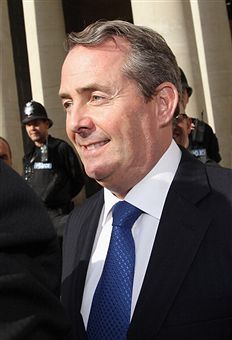 The Werritty case has made everyone who believes that government is controlled by
lobbyists and tycoons slaver. The Guardian screams that Ministers held more than 1,500 meetings with corporate
representatives in the first 10 months of the coalition, which presumably the newspapers’ readers know to disapprove of. But how many unionists did Labour meet after a year in office —
and how many corporations? The party that declared itself “relaxed” about profit-making presumably met one or two profit-makers. Or did Ed Balls, when he was City minister, stay away from
the Square Mile?
The Werritty case has made everyone who believes that government is controlled by
lobbyists and tycoons slaver. The Guardian screams that Ministers held more than 1,500 meetings with corporate
representatives in the first 10 months of the coalition, which presumably the newspapers’ readers know to disapprove of. But how many unionists did Labour meet after a year in office —
and how many corporations? The party that declared itself “relaxed” about profit-making presumably met one or two profit-makers. Or did Ed Balls, when he was City minister, stay away from
the Square Mile?
I don’t know the numbers, but I am sure they would reveal that governments from Left and Right tend to meet a range of groups to take views, sample reactions to policy, respond to criticism
etc. Tories, given their economic philosophy, tend to meet more from business and Labour, given its heritage, tend to meet more unionists. As long as these meetings do not lead to any underhand
dealings, what’s the problem? The mere fact that the meetings have been recorded suggests that officials are keeping track of what’s going on.
It strikes me that there is a real danger of overreacting to the Werritty case. No other Cabinet minister has Liam Fox’s buccaneering manner, even if Labour and newspapers like The Guardian
will always believe in, to rework Hillary Clinton’s phrase, “some vast right-wing conspiracy” that has the CBI in cahoots with the Conservative Party. The Werritty case will
probably make it harder for think tanks, especially on the Right, to raise funds from donors for real research, which will damage the environment in which non-governmental research operates.
Tightening the noose even more through regulation in a fight against made-up conspiracies will not make policy processes any better. It will hand more power to the civil service, which, by the
admission of its senior members, does best when it competes against other sources of advice, analysis and information rather than monopolise it.






Comments